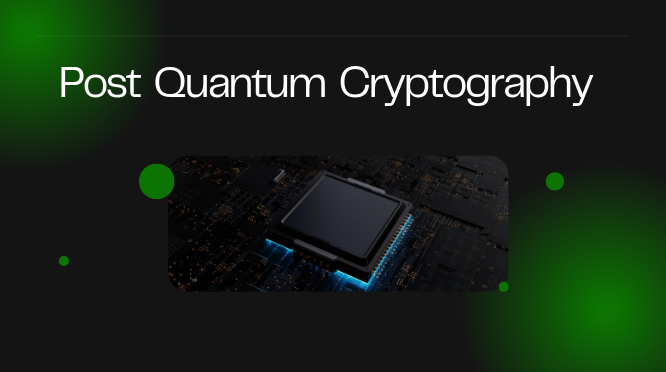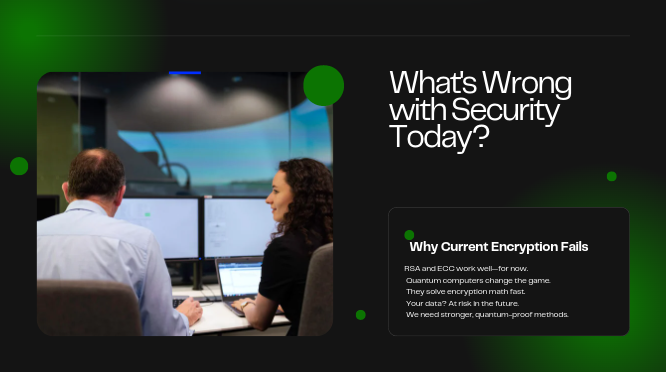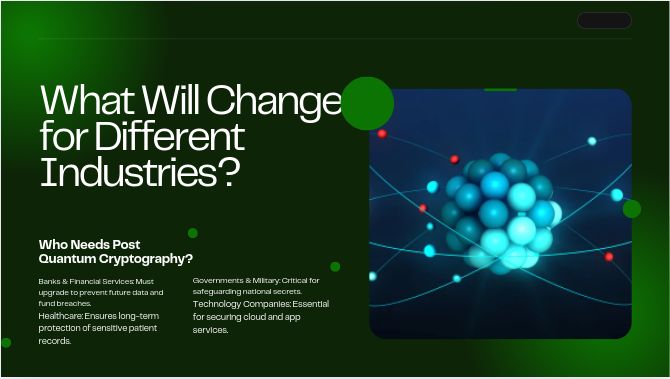In today’s world, everything is going digital—our photos, bank accounts, health records, even our conversations. But as we store more and more of our lives online, protecting that data becomes critical. One big change happening in 2025 is the move toward Post Quantum Cryptography (PQC).
It may sound technical or complex, but this guide will explain Post Quantum Cryptography in simple terms, why it matters, and how businesses and individuals can get ready.
Table of Contents

What Is Post Quantum Cryptography?
Let’s say you write a secret message to your friend and put it in a box.Only your friend has the key. That is how normal computer security (encryption) operates today. But suppose someone creates a super-intelligent robot (a quantum computer) that can open your secret box without the key. Spooky, huh?
Post quantum cryptography is like developing new types of locks that even that smart robot will not be able to break. Those new locks are developed using other types of mathematics that quantum computers will not be able to break.
Why Is 2025 So Important?
By 2025, the majority of experts opine that we are nearer to creating these strong quantum computers. That is the reason why it is totally imperative that businesses, schools, even governments begin preparing now.
A massive team named NIST (National Institute of Standards and Technology) is assisting everyone by selecting the best new locks—these are the Post Quantum Cryptography algorithms. As soon as they select them, businesses all over the globe will start using them to secure their data.
What’s Wrong with Security Today?

Nowadays, most of our digital locks (such as RSA and ECC) are secure—at least for normal computers. But quantum computers can break the mathematical puzzles behind such locks much more quickly. So, with advancing quantum computers, they will break today’s locks without even sweating.
What Do These New Locks Look Like?
There are a variety of different types of post quantum locks. These include the following primary ones:
Lattice-based cryptography: Think of concealing your message within a gigantic puzzle with thousands of pieces. Quantum computers have a hard time cracking it as well.
Multivariate polynomial cryptography: This employs extremely difficult math puzzles that are extremely challenging to solve, even for intelligent computers.
Hash-based cryptography: They’re ideal for authenticating documents to establish that they’re genuine. They apply something referred to as “hash functions,” essentially digital fingerprints.
Code-based cryptography: They have been around for a long time and are extremely secure, but they require large space.
They are all useful for various situations. Some are faster, some use less memory, and some are better for specific tasks.
How Can Businesses Prepare?
If you are in IT or business, this is how you can start preparing:
1. Find Where You Use Encryption
Scan all of your systems and identify where you use encryption. That includes emails, websites, apps, and stored data.
2. Select What Needs Most Protection
Consider what has to be preserved for a long time. Medical records? Fiscal information? Guard those first.
3. Make Your Systems Flexible
Set things up so you can change the type of encryption later without rebuilding everything. This is called crypto-agility.
4. Experiment with Post Quantum Cryptography in a Safe Manner
Try the new algorithms on non-critical components of your system. See how they function.
5. Collaborate with Your Technology Partners
Inquire from your vendors and service providers if they’re preparing for quantum computers. Let both of you be on the same page.
6. Keep Learning and Updating
Stay abreast of groups like NIST, For more in-depth research on PQC.
What Will Change for Different Industries?

Banks and Financial Services
If banks fail to upgrade, funds and information belonging to their customers can be lost in the future. That is why the majority are now switching to Post Quantum Cryptography.
Healthcare
Physicians and hospitals have to keep patient data safe for years. Post Quantum Cryptography guarantees that sensitive data will not be accessed by intruders in the future.
Governments and Military
National secrets will be breached if they are not well protected. Governments are also the first among others to endorse Post Quantum Cryptography.
Technology Companies
What’s Making This Change Hard
It is not all straightforward. Below are some problems people have:
t’s slower: Certain Post Quantum Cryptography methods can slow down systems a little.
Difficult to change: It requires effort and time to replace old encryptions with new ones.
People don’t know: The vast majority don’t know what quantum computing is or why they should care.
No specified timeline: We don’t know exactly when quantum computers will be able to break today’s encryption.
We Need More People Who Get This
To move forward, we need more professionals. At the moment, there aren’t enough people who know how to use Post Quantum Cryptography. Schools, education courses, and companies need to teach this material more.
It’s time to learn about Post Quantum Cryptography. You can be an IT professional, a cyber security professional, or even a student—these new skills will come in handy in the times to come.
Getting Ready for Tomorrow
Moving to post quantum cryptography is like having a seat belt before the crash. It’s being smart and being prepared. Businesses that start now will be safer and will be more respected.
Moreover, Post Quantum Cryptography could even render systems secure and more efficient in the long run. It’s not just a defense system—it could help develop better technology overall.
Final Thoughts: Quantum computers are coming—maybe not tomorrow, but soon enough. That means we need to start preparing today, not after something goes wrong. Take a look at your current systems. Figure out what needs protection. Talk to people who understand this new tech. By acting now, you’re helping create a safer digital world—for your business, your customers, and everyone else.
And if you’re looking for help with digital marketing along the way, check out what we offer.
